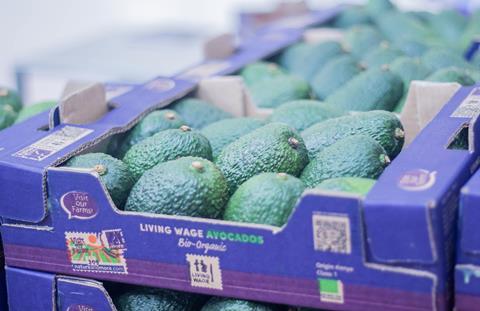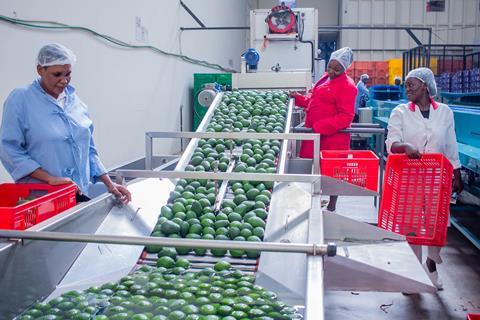The Dutch organic company is introducing Fairtrade certification for its Kenyan avocados, as it looks to help growers build economic and ecological resilience
From this summer, all Eosta’s avocados from Kenya will be Fairtrade-certified, according to the Dutch organic supplier.

“Eosta’s organic avocado is unique when it comes to quality and sustainability,” the company stated. “In a challenging time when companies are taking steps to report on climate and water, we are taking an extra step to offer our organic avocado also in a socially fair way.”
Four years ago, Eosta introduced living wages for its packhouse workers, with enough raised to guarantee a 40 per cent increase in the coming years, the group said, virtually closing the gap to the Living Wage benchmark.
The company described this as a “huge step” for packhouse workers who are mostly women and mothers. “They are now moving from survival to a more dignified life, including a good education for their children,” Eosta stated.
Anthony Ngugi of Mavuno Organics Kenya commented: “We are full of many stories about how our workers’ lives and their families are been transformed by the Living Wage premiums courtesy of Eosta. It is one of a kind, an echo to sustainable efforts. Marvellous!”
Fairtrade certification will soon be added, according to Eosta. “Last year we worked hard to train and organise growers in the Muranga region in smallholder groups,” it revealed. “They will consider how to spend the premium obtained from the sale of Fairtrade avocado. This creates extra cohesion within the community and contributes to the organisational capacity of the smallholders.
“Our organically certified avocados are grown in Kenya by smallholders, the average area per farm is one hectare. The cropping system is mixed. Various crops like coffee, banana, pepper, pulses etc are grown interchangeably. There is also some livestock farming, mostly a cow and some goats for milk and, of course, their dung. Native trees provide shade for the coffee. So there is a natural variation that provides an ecologically as well as financially resilient business model for the growers.”
According to Gert-Jan Lieffering, sourcing manager at Eosta, Kenyan avocados score high on the sustainability scale. “The product scores well on all fronts of the sustainability domain,” he confirmed. “Irrigation is not necessary, as two rainy seasons ensure a sufficient natural supply of water. This means that these avocados have a water footprint of zero. Quite extraordinary for a fruit that is often framed as a super water guzzler. The huge natural mulch layer full of organic matter ensures high water retention capacity.
“CO2 emissions are also low. No fertiliser is used, there is no mechanisation and no pump for water, so no fossil fuel is needed on the farms. The huge variety of crops and plants without the use of pesticides ensures biodiversity above and below ground. Birds, insects and microbiology have complete freedom.”




